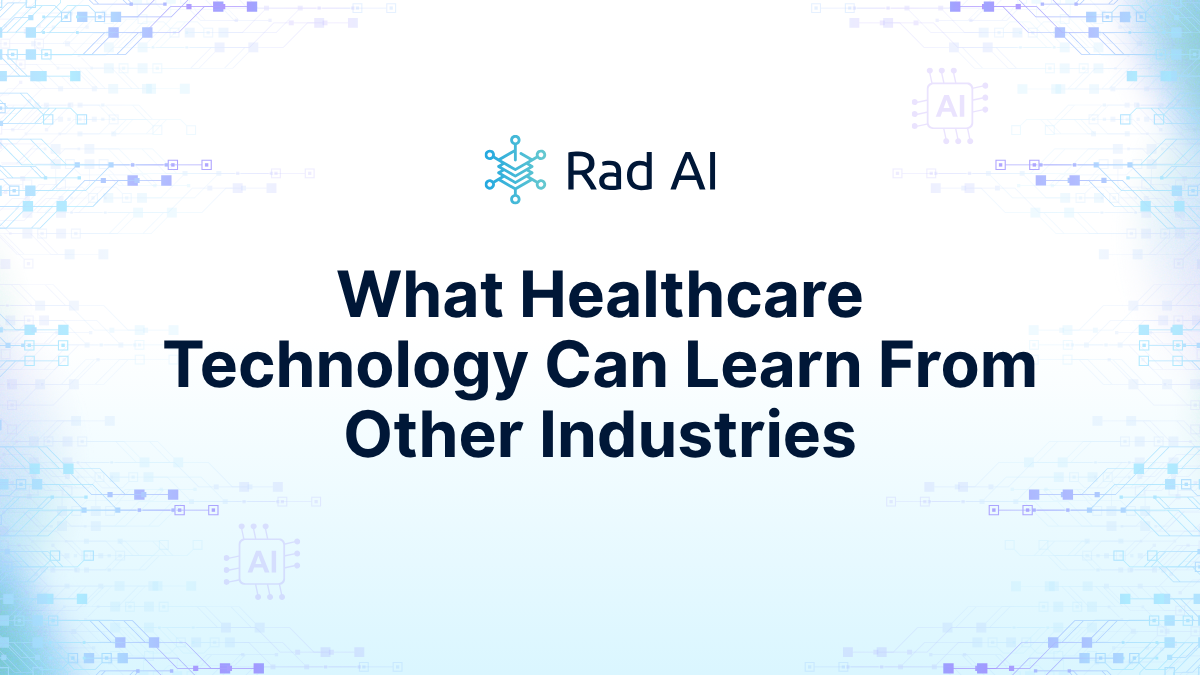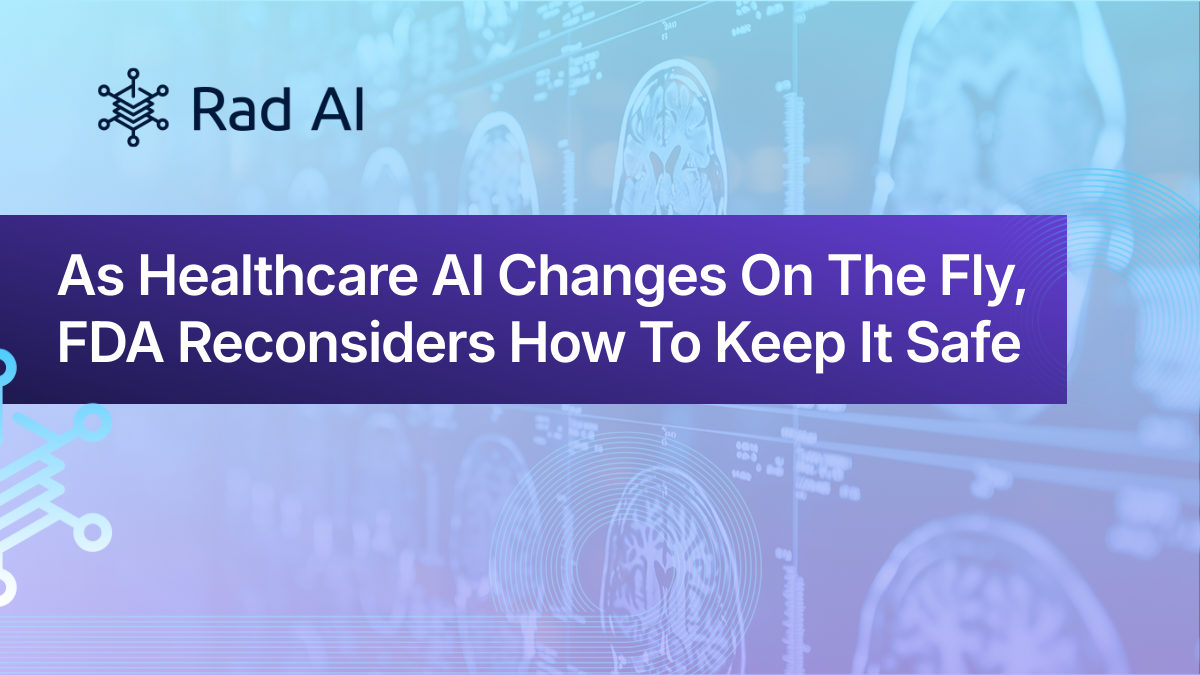What Healthcare Technology Can Learn From Other Industries


The successful integration of technology, digital tools, and AI in healthcare relies not only on clinical innovation but also upon adopting and learning from robust frameworks for safety and reliability perfected in other high-stakes industries. Drawing lessons from other key verticals, such as aviation, manufacturing, and retail, can provide significant clarity and accelerate the deployment of trustworthy, effective healthcare technology.
The Confidence Factor: Learning from Aviation's Safety Culture
The aviation industry is the pinnacle of high reliability alongside a steady human presence and has established a culture of mutual validation between human expertise and automated systems. For healthcare AI, this can be translated to designing systems that serve as powerful "co-pilots," reducing the potential for human error and enhancing clinician capabilities. Some key technical takeaways are the need for algorithmic consistency, transparency, and structured human-AI teaming. By embedding AI insights directly into clinical workflows with clear explainability, confidence is built. The goal is to make AI a natural extension of a clinician's skills, not a substitute, thereby overcoming barriers like automation bias through continuous, collaborative validation.
Maintaining Excellence: Manufacturing's Quality Assurance
From manufacturing, healthcare can learn the imperative of delivering consistent quality at massive scale. Modern factories utilize advanced planning systems and leverage AI for real-time anomaly detection to prevent production faults. Similarly, healthcare needs consistent mechanisms to ensure model performance does not degrade over time. This requires setting up automated monitoring pipelines to track for data drift, where subtle shifts in data sources or sensor input can compromise the model's predictive precision. A proactive approach will better empower a tool’s efficacy to perform well and maintain the same level of reliability when used across thousands of parameters and use-cases, transforming maintenance from reactive fixes to sustained excellence.
Frictionless Experience: Applying Retail's Data Integration
The retail sector demonstrates how deep data integration and an excellent User Experience (UX) can foster user trust and loyalty. The healthcare industry, as a whole, should leverage this by prioritizing semantic interoperability to create unified systems that make patient care easier, and thereby, create the foundation for effective personalized medicine. By focusing on intuitive design and longitudinal vision, AI systems can reduce administrative friction for providers and make patient-facing applications (like personalized health coaching or symptom checkers) as seamless and engaging as top consumer-facing technology. This retail mindset shifts the focus from purely managing illness to proactively driving improve outcomes through highly relevant and accessible AI tools.
By adopting these proven, cross-industry principles which focus on validation, transparency, and seamless integration, the healthcare industry can ensure that technology is introduced as a trusted and powerful partner, accelerating the path to better societal outcomes.





